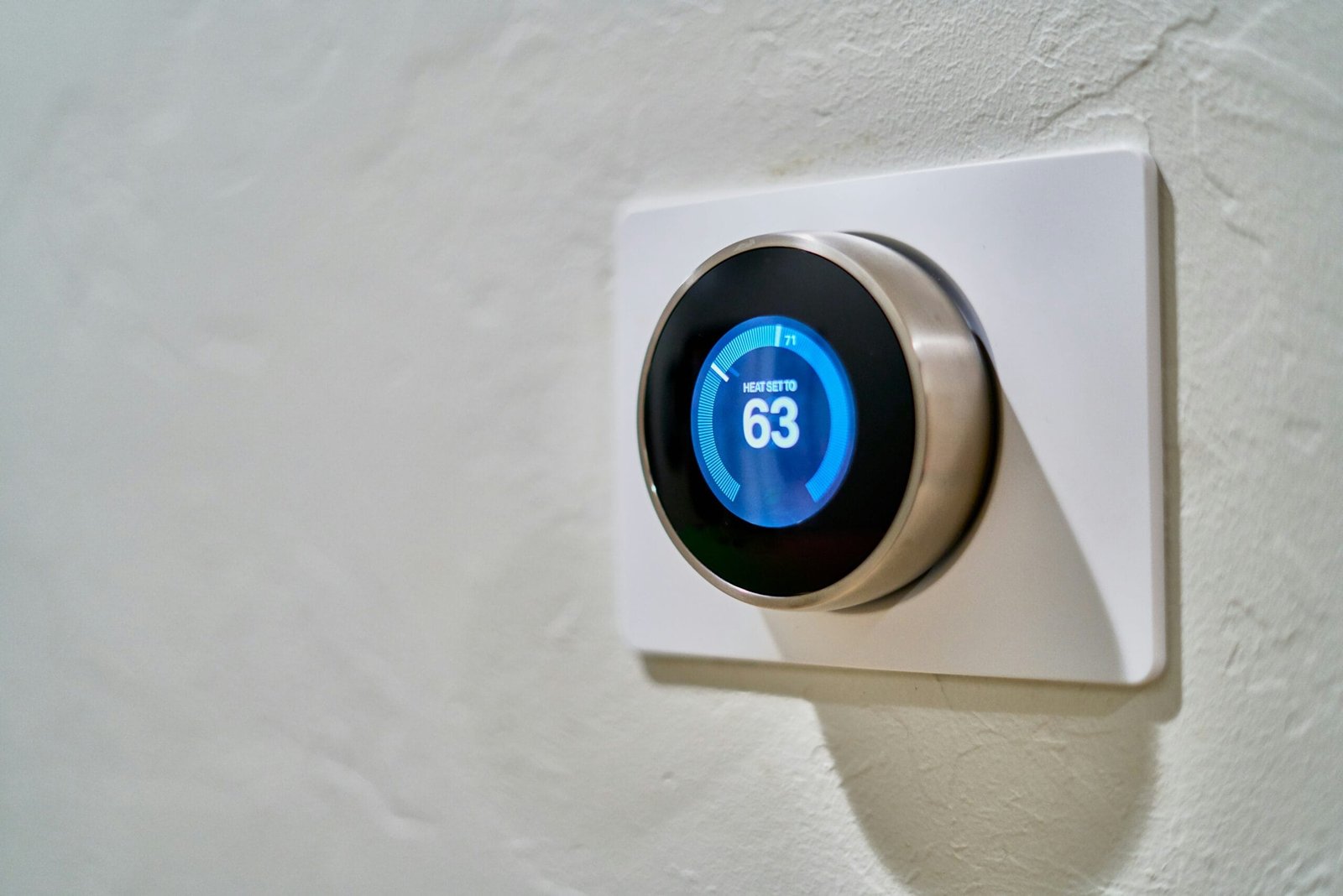10 Mind-Blowing latest Technology Trends of 2025 You Can’t Afford to Miss
Discover the latest technology trends transforming the world in 2025. Explore innovations in AI, IoT, blockchain, and more. Stay ahead of the curve now!
Why Understanding Technology Trends is Crucial in 2025
Many believe that tracking the latest technology trends is only relevant for tech enthusiasts or IT professionals. However, this assumption couldn’t be further from the truth. Technology trends influence nearly every aspect of our lives, from the way businesses operate to how we communicate, learn, and even shop. Staying informed about these advancements isn’t just optional anymore—individuals and businesses alike need to remain competitive and relevant in a rapidly evolving world.
In this blog, we will dive into the latest technology trends shaping 2025, uncovering their significance and how they’re transforming industries. Whether you’re a business owner, student, or simply curious about future innovations, understanding these trends will help you stay ahead of the curve. Let’s explore these cutting-edge developments that are redefining the future.
Top 10 Latest Technology Trends Shaping the Future
The year 2025 is already proving to be a game-changer in the tech world. Here are ten transformative trends that are paving the way for a smarter, more connected future:
1. Artificial Intelligence (AI) and Automation
Contrary to the common belief that AI is limited to tasks like virtual assistants or chatbots, its applications now extend far beyond. AI is revolutionizing industries such as healthcare, marketing, and manufacturing by enabling predictive analytics, personalized recommendations, and intelligent automation.
For instance, AI-powered tools are helping businesses optimize supply chains, while in healthcare, they’re improving diagnostic accuracy and enabling robotic surgeries. Automation, powered by AI, is also reducing human error and increasing efficiency in industries like logistics and retail.
2. Internet of Things (IoT) Advancements
While many think IoT is limited to smart home devices like thermostats and speakers, its scope has expanded dramatically. In 2025, IoT is revolutionizing industries such as agriculture, manufacturing, and urban planning. Smart cities are becoming a reality, where IoT sensors monitor traffic flow, reduce energy consumption, and improve waste management.
In the consumer space, IoT devices are making daily life more convenient, from wearable fitness trackers to refrigerators that notify you when you’re running low on groceries. This interconnected ecosystem of devices is also leading to enhanced data collection and analysis, offering businesses valuable insights into customer behavior.
3. Blockchain Technology Beyond Cryptocurrencies
Blockchain is no longer synonymous solely with cryptocurrencies like Bitcoin. In 2025, blockchain technology is driving innovation in industries such as supply chain management, healthcare, and real estate. Its ability to provide secure, transparent, and tamper-proof records is revolutionizing the way data is stored and shared.
For example, blockchain is being used to verify the authenticity of luxury goods, ensure food safety through traceability, and protect patient medical records from unauthorized access. By eliminating intermediaries, blockchain is also reducing costs and increasing efficiency in various sectors.
4. 5G and Next-Gen Wireless Technologies
The belief that 5G is only about faster internet speeds is a misconception. While it does deliver lightning-fast connectivity, its real impact lies in enabling technologies like autonomous vehicles, smart cities, and the Internet of Things (IoT). With ultra-low latency and high capacity, 5G is transforming industries such as healthcare by enabling remote surgeries and entertainment through seamless AR and VR experiences.
As businesses and consumers adopt 5G, we’re witnessing a new era of innovation that goes beyond connectivity to empower real-time data processing and advanced automation.
5. Augmented Reality (AR) and Virtual Reality (VR)
It’s often assumed that AR and VR are limited to gaming and entertainment. However, these technologies are now making waves in education, retail, and healthcare. In 2025, AR is being used for interactive learning experiences, such as virtual field trips and anatomy lessons. Meanwhile, VR is transforming e-commerce by offering immersive shopping experiences where customers can try products virtually before purchasing.
Additionally, AR and VR are improving remote collaboration by enabling virtual meetings in lifelike environments, making them invaluable tools for businesses embracing hybrid work models.
6. Quantum Computing
Quantum computing, once a concept confined to research labs, is now emerging as a revolutionary force in computing power. By leveraging quantum mechanics, these computers can solve complex problems at speeds unimaginable with traditional systems. Industries such as finance, logistics, and pharmaceuticals are already exploring quantum computing for applications like risk analysis, supply chain optimization, and drug discovery.
Although still in its early stages, quantum computing holds the potential to disrupt existing technologies and create entirely new possibilities for problem-solving.
7. Renewable Energy Technologies
Many people associate renewable energy solely with solar panels or wind turbines. But in 2025, advancements in renewable energy technologies are introducing innovations like floating solar farms, advanced battery storage, and smart grids. These developments are making sustainable energy more accessible and efficient.
For example, new battery technologies are addressing the challenge of storing renewable energy for extended periods, enabling households and businesses to rely more heavily on green energy sources.
8. Advanced Robotics and AI-Powered Automation
The stereotype that robots are only for factories is outdated. In 2025, advanced robotics is entering homes, hospitals, and even space exploration.
In manufacturing, collaborative robots (or cobots) work alongside humans to streamline production processes, while in agriculture, autonomous robots perform tasks like planting and harvesting with precision.
9. Smart Cities and Urban Tech Innovations
The misconception that smart cities are just a futuristic concept is fading as we see real-life examples of urban areas adopting technology to improve infrastructure and quality of life. From intelligent traffic systems that reduce congestion to smart waste management solutions, these technologies are making cities more sustainable and livable.
IoT sensors, AI-powered analytics, and 5G connectivity are key enablers of smart cities, creating environments where technology seamlessly integrates with everyday life.
10. Cybersecurity and Digital Protection
While many think cybersecurity is a concern only for large corporations, the reality is that it affects everyone—from individuals to small businesses. With the rise of IoT devices and remote work, protecting digital assets has never been more critical.
In 2025, advancements in cybersecurity include AI-driven threat detection, biometric authentication, and blockchain-based security protocols. These technologies are helping organizations stay one step ahead of cyber threats.
This detailed exploration of the latest technology trends sets the stage for understanding how these innovations are reshaping our world. In the next section, we’ll dive deeper into the impact of these trends on specific industries. Stay tuned!
The Impact of These Trends on Industries
The Impact of These Tech Trends on Industries explores how emerging technologies like AI, blockchain, IoT, and cloud computing are transforming various sectors. These advancements improve efficiency, innovation, and customer experiences, while also disrupting traditional business models. Industries such as healthcare, finance, manufacturing, and retail are undergoing significant changes, with automation, data-driven decision-making, and personalized services becoming the norm. The result is a more connected, agile, and competitive business landscape, where staying ahead of these trends is key to success.
Healthcare Technology Advancements
Healthcare is undergoing a massive transformation, fueled by cutting-edge technologies like AI, IoT, and blockchain. AI is being used for predictive analytics in patient care, enabling early disease detection and personalized treatment plans. IoT-powered medical devices, such as wearable health trackers and remote monitoring tools, are improving patient outcomes and reducing hospital visits. Blockchain ensures secure storage and sharing of medical records, enhancing data privacy and integrity.
The Future of E-Commerce and FinTech
Blockchain, AI, and 5G are revolutionizing e-commerce and FinTech by creating faster, safer, and more efficient systems. AI-powered chatbots are personalizing the shopping experience, while blockchain is ensuring secure online transactions and supply chain transparency. The ultra-low latency of 5G enables real-time payment systems and immersive online shopping experiences through AR/VR technologies.
Education in the Age of Technology
AR/VR and AI-based learning platforms are reshaping how students engage with education. Virtual reality enables immersive experiences like virtual field trips and lifelike anatomy lessons. AI is creating personalized learning paths and automating administrative tasks for educators. These innovations are bridging gaps in accessibility and enhancing the overall learning experience.
The Role of Emerging Technology Trends in Everyday Life
Emerging technologies are seamlessly integrating into our daily routines, making life more efficient, convenient, and connected. New gadgets, wearable tech, and smart home innovations are leading the charge in transforming everyday activities.
Wearable tech, such as smartwatches and fitness trackers, not only monitors health metrics but also keeps users connected on the go. Smart home devices, like voice-controlled assistants, smart thermostats, and automated lighting systems, are simplifying household management while saving energy and costs. These technologies are also enhancing safety with features like real-time monitoring and remote access to devices.
From grocery shopping using AI-enabled apps to maintaining fitness goals through IoT-powered wearables, technology is revolutionizing the way we approach daily tasks.
How Businesses Can Stay Ahead with the Latest Tech
To remain competitive in the fast-evolving technological landscape, businesses must actively adopt and leverage emerging tech trends. Here are actionable strategies to ensure success:
- Invest in AI Tools:
AI-powered tools can streamline operations, improve decision-making, and enhance customer experience. From chatbots for customer service to predictive analytics for marketing, AI can offer a significant competitive edge. - Leverage Blockchain for Transparency:
Blockchain technology can increase trust and efficiency by ensuring secure, transparent, and tamper-proof transactions. Businesses can use it for supply chain management, fraud prevention, and customer loyalty programs. - Upgrade to 5G Networks:
Adopting 5G connectivity can unlock real-time data processing, enable advanced IoT applications, and improve overall operational efficiency. Industries such as manufacturing, retail, and logistics can benefit immensely from faster and more reliable networks.
By integrating these innovations, businesses can optimize their processes, enhance customer satisfaction, and stay ahead of competitors in an increasingly tech-driven market.
Challenges and Ethical Considerations of Technology Trends
While the latest technology trends bring immense opportunities, they also introduce critical challenges and ethical dilemmas that must be addressed for responsible innovation.
1. Data Privacy and Security Concerns:
With the proliferation of IoT devices and AI tools, the amount of data being collected has skyrocketed. This raises serious concerns about how personal information is stored, shared, and protected. Businesses must prioritize robust cybersecurity measures to safeguard sensitive data and comply with data protection regulations like GDPR.
2. Cybersecurity Threats:
The increased connectivity of devices through 5G and IoT has created new vulnerabilities for cyberattacks. Organizations must adopt advanced cybersecurity solutions, such as AI-driven threat detection and blockchain-based security, to stay one step ahead of hackers.
3. Ethical AI Use:
AI systems are only as unbiased as the data they are trained on. Ensuring ethical AI use means addressing issues like algorithmic bias, transparency, and accountability. Companies must commit to developing AI systems that are fair, explainable, and aligned with societal values.
4. Balancing Innovation with Ethics:
While the drive for innovation is crucial, it should not come at the cost of ethical considerations. Businesses and governments must work together to create regulations and guidelines that ensure technology is developed responsibly and benefits all.
Conclusion: Embracing the Future of Technology
The latest technology trends are not just shaping industries but redefining how we live, work, and connect with the world. From AI-driven automation to quantum computing, these innovations hold immense potential to transform our future.
For individuals and businesses, staying informed and adaptable is key to leveraging these advancements effectively. Embrace the opportunities these trends offer and prepare for a world where technology continues to drive progress.
Stay tuned for more insights on how to navigate the ever-changing tech landscape!







